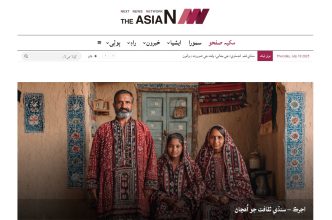Kazakhstan President: Moving from ‘Super-Presidential’ model to ‘Presidential republic with strong parliament’

Tokayev addressing the parliament (Kazinfo)
NUR-SULTAN: Kazakh President Kassym-Jomart Tokayev has called for changing the distribution of power from the office of the presidency to a strong parliament.
This can be achieved through enhancing the power and responsibilities of the parliament, Tokayev said in his state of the nation address at the joint session of the Kazakh Parliament, local daily Astana Times reported
Constitutional reforms that will limit the powers of the president include a legislative prohibition of the president being a member of any political party for the period of his term. Earlier, the President announced that he will cease his chairmanship of the ruling party of the country – Amanat (previously known as Nur Otan).
The president’s current right to cancel or suspend the actions of regional and city akims (mayors) should also be abolished because it “contributes to the excessive practice of “manual administration” and reduces the independence of local executive bodies.”
Tokayev said that reforms to increase the role of the parliament should start from the review of the formation and functions of the Senate (upper house) and the Mazhilis (lower house).
“The key goal of the country’s political modernization is to increase the role of citizens in the state governance through electoral processes.”
He set forward the task of reforming the parliament electoral system. The mazhilis electoral system will transform to a mixed proportional-majoritarian model, where 70 percent of deputies will be elected by a proportional model, and 30 percent by a majoritarian rule. This will enable the participation of candidates that are not members of political parties.
Tokayev also wants to reduce the presidential quota in the senate from 15 to 10 members, including five who will be recommended by the Assembly of the People of Kazakhstan, not elected by it, as it is now.
Tokayev justified the proposal by saying that “The presidential quota in the Senate should not be seen as a means of control, but as a mechanism for taking into account the voices and opinions of social groups poorly represented in Parliament.”



